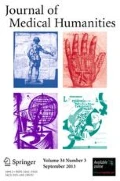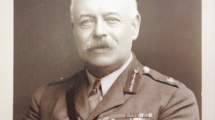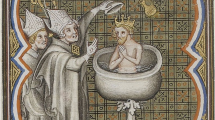Abstract
In the mid-nineteenth century when Joseph Baron Lister was beginning his surgical career, bold new theories of medicine were being proposed with increasing frequency. Many of these new theories were in conflict as to how the body functioned and how disease and injury should be approached. They all conflicted more, however, with the older theory of vitalism which they were gradually replacing. Lister believed in vitalism and was quite bothered by the new theories, but did not react to them with hostile criticism or bombast. His typical gentlemanly style was to test them quietly against his own understandings and beliefs. This historical essay focuses upon the feelings, thoughts, and beliefs of Joseph Lister as reflected by his background and his most important experiments. It will show that the discovery which transformed surgery did not originate from any “leading edge” medical theory of the era. The antiseptic principle originated from the experimentation of a troubled vitalist in the service of the theory in which he so passionately believed.
Similar content being viewed by others
Reference notes
The Collected Papers of Joseph Baron Lister, The third Huxley lecture, p. 515. This lecture was delivered before the Medical School of Charing Cross Hospital on October 2, 1900. It was published in theBritish Medical Journal on October 6, 1900, and reprinted with corrections in February 1907.
Ibid.
Ibid.
Godlee, R.J.,Lord Lister, Chap. II, p. 17, 1924.
Ibid., Chap. XXXVII, pp. 599–601.
Collected Papers, On the coagulation of the blood, The Croonian Lecture delivered to The Royal Society of London, June 11, 1863, p. 110.
Ibid., The third Huxley lecture, p. 517.
Ibid., p. 519.
Collected Papers, On the early stages of inflammation, June 18, 1857, pp. 209–273.
Collected Papers, On spontaneous gangrene from arteritis and the causes of coagulation of the blood in diseases of the blood vessels, April 1858, p. 72.
Godlee, R.J.,Lord Lister, p. 70.
Collected Papers, op. cit., footnote 10.
Guthrie, D.,Lord Lister, his life and doctrine, p. 53.
Collected Papers, On a new method of treating compound fractures, abscesses, etc., 1867, p. 3.
Ibid., p. 11.
Ibid., pp. 1–36. (Lancet, 1867, vol. i, pp. 326, 357, 387, 507; vol. ii, p. 95.
References
The collected papers of Joseph Baron Lister, Oxford: Clarendon Press, 1909.
Cameron, H.C.,Joseph Lister, the friend of man, London: Heineman Medical Books, 1927.
Dolman, Claude E., Joseph Baron Lister,Dictionary of Scientific Biography, pp. 399–413.
Leeson, J.R.,Lister as I knew him, London: Balliere, Tindall, & Cox, 1927.
Godlee, R.J.,Lord Lister, 3rd Ed. Oxford: Clarendon Press, 1924.
Guthrie, D.,Lord Lister, his life and doctrine, Edinburgh: E. & S. Livingstone Ltd., 1949.
Truax, R.,Joseph Lister, father of modern surgery, London: George G. Harrap & Co. Ltd., 1947.
Williams, G.,The age of miracles, London: Constable & Co. Ltd., 1981.
Wrench, G.T.,Lord Lister, his life and work, London: T. Fisher Unwin, 1913.
Author information
Authors and Affiliations
Rights and permissions
About this article
Cite this article
Osborn, G.G. Joseph Lister and the origins of antisepsis. J Med Hum 7, 91–105 (1986). https://doi.org/10.1007/BF01117901
Issue Date:
DOI: https://doi.org/10.1007/BF01117901




